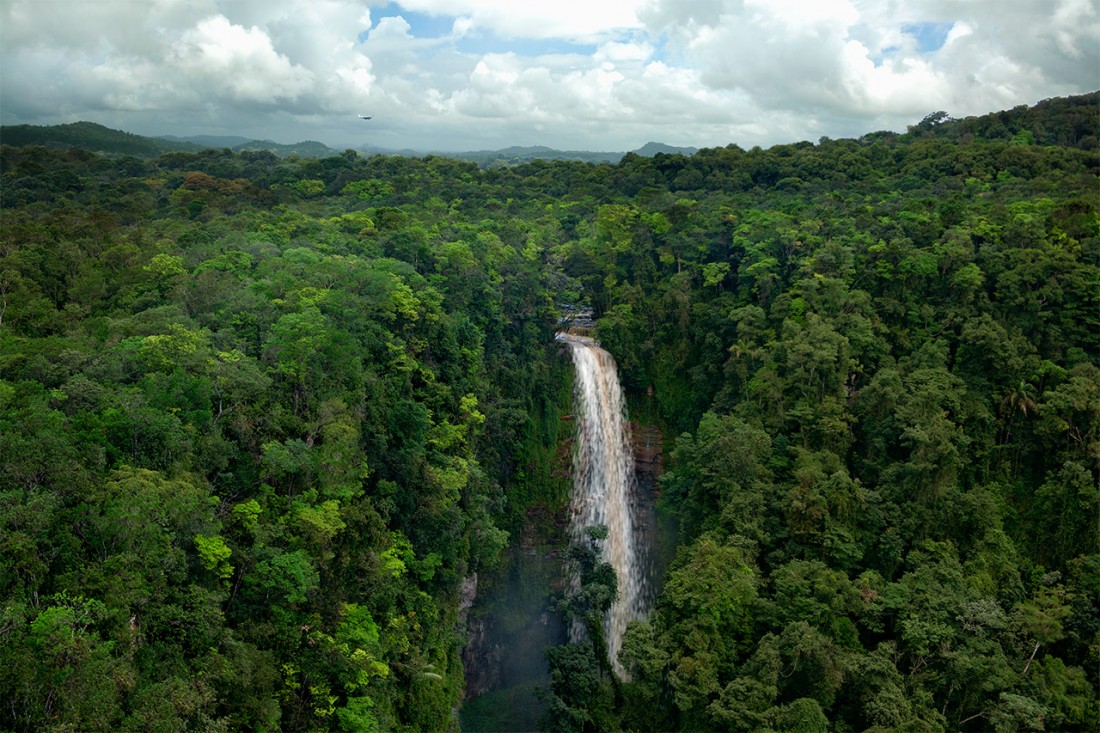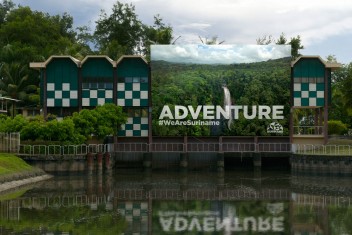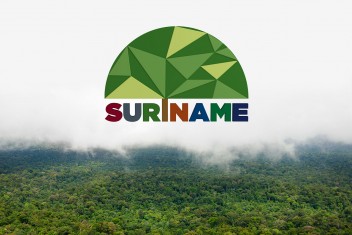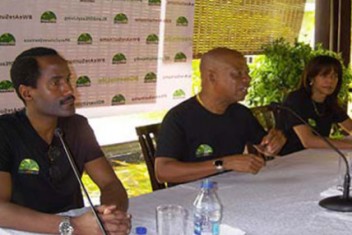

A World Away: What Suriname Can Teach Us
April, 2014
What does Suriname (formerly Dutch Guyana) have to teach us? The smallest independent country in South America with just over half a million inhabitants, per capita income not much more than $10,000, possibly 80% or more of the country composed of rainforest – what possible lesson can it hold for the world? Let us add a few even more exotic facts to the ledger: most of the population lives along the north coast; the government is composed of figures who fought each other in a ten-year-long civil war that divided the country between pro-socialist military coup leaders and rebels. The man who presided over that coup, Desi Bouterse, is now the country’s elected President.
It all sounds too sui generis and eccentric to hold any examples for the wider world. Yet, consider – the ten year civil war resulted in not much more than 70 deaths. It didn’t lead to massive logging of rainforests or huge oligarchic corruption in league with giant foreign interests. There’s little evidence of festering hostilities, violent presence of drug cartels, or an incipient crime problem. No FARC-like forces enduring in the jungle. All very unusual for Latin America, especially since numerous tribes of indigenous folk vulnerable to such things inhabit the interior.
The population is made up of whites (mostly Dutch), Creoles, Amerindians, Maroons (former slaves who escaped to the jungle), Indians from the subcontinent (former indentured servants, Javanese and others. One central avenue in the capital Paramaribo houses a mosque and a synagogue cheek-by-jowl to each other with a cathedral nearby. You will rarely see a more exquisite downtown in any capital, with its old Dutch wooden houses and festive riverside sprawl. There’s an indefinable whiff of New Orleans in the air. Then, out to interior, the great virginal, original, continent still intact with its pageant of natural and tribal life. Here is a genuinely multi-ethnic land that seems to have plunged into the region’s minefields and somehow emerged admirably sound of mind. What’s the secret formula?
The game isn’t over yet, of course. Lots can still go wrong, with so much potential for exploitation of untapped natural resources, from gold to Bauxite to timber and much else. But it’s really not so complicated. You begin by doing things slowly and guardedly and avoid letting in pressures that can overwhelm good governance. Just a small example: the gold sector. The topic of gold mining in Suriname offers a telling paradigm and one can go on about it instructively at length. I will more fully on another occasion. But suffice it here to say that the government has taken effective measures to integrate the flood of freelance gold miners from nearby Brazil into a regulated system by furnishing incentives. The wildcatters have access to cheap little gizmos from the state which trap mercury rather than pollute the environment. If they register on the rolls, the interlopers can lease pre-surveyed land already cleared by the state. They get paid more if they sell their product through official channels. They get access to healthcare if they co-operate. In short, what can quickly become a structural threat to the country’s stability gets defused through graduated, ordered, development.
Similarly, Suriname’s diverse ethnic composition can turn into divisive fault-lines, as much a weakness as a strength, if handled badly. The government, since its 2010 accession to power, has taken pains to consult indigenous folk on how development should proceed, if at all. In the interior, villagers get support to establish their own traditional schools alongside state-run village schools. This is a country at the threshold of critical historic decisions, the kind that often lead to chaos and confusion. How far does one educate or encourage tribal folk to join the modern economy? How does one address the alienation bred therefrom? What does one do with the population spike ensuing from modern medicine when more children survive and overwhelm village economies? How should one handle a newly discovered need for money among people who’ve done perfectly well without for 20,000 years?
Faced with such issues, it becomes clear that our global paradigms don’t provide answers, unless you consider a one-way trip to Brazillian conditions to be a solution. The fact is, we have all, humankind as a whole, has taken that route and, well, take a look around. We are all semi-embattled at various stages along that single-lane highway to the future. Russia, Ukraine, the Mideast, a bankrupt EU, China versus Japan, Tibet, Africa deforested and depleted of wild life. Global climate change. Is this the direction we wish to push the Amazonian Indians or the Maroons who established stable village cultures centuries ago in flight from slavery? Will they be redeemed by consumerism? To an honest mind, the choices hovering over Suriname should give us pause about our own future. And whether we would wish it on others, if they have the chance to avoid it.
And there’s the rub. Can they avoid it? The centrifugal forces of globalization pull so powerfully even small steps might accelerate beyond control. Suriname is already flirting with Chinese incursions into the economy. Chinese-owned supermarkets dot the roads to the river towns. Larger development plans loom. Let us hope the government in Paramaribo can take Beijing’s lure in measured mouthfuls because China’s voracious needs, not least in gold and timber, can overwhelm a place like Suriname. That aside, the questions remain, questions for all of us posed by this little country, still largely untouched, as it stands on the edge of a vast plateau encompassing millennia wondering whether to forge on in our wake.
Do they have a choice? That’s the tremendously resonant question. It’s easy to dismiss with notions of inevitability the plight of Amerindians and other indigenous folk. Modernization must come inevitably so let it happen. They surely cannot remain hunter-gatherers forever. Nobody has. That’s the argument, though not an entirely accurate one: Venezuela has allowed the Yanomami Indians to opt out and seal themselves off. The option is there. But far more difficult is the realistic question of how to develop in small enough increments that they can control the pace of change. Above all, that they can make an informed choice throughout. And adapt their cultures, their complex cosmologies and spiritual systems and family structures. The same goes for Suriname as a whole. The trick is to develop mechanisms for gradual change, dikes and sluices against the torrent, so you can equipoise yourself constantly between past and future, between tradition and evolution, subsistence and luxury.
That, then, is Suriname’s lesson for the world, thus far a positive one. But not a complete one. So much impends. I leave you with a question that embodies their critical moment and reaches into our deepest conscience – should tribal villages have internet?




